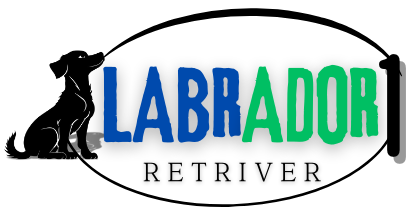Learn all about the Lab Hound Mix: temperament, training tips, and health insights.
If you’re in search of a dog that combines boundless energy with unwavering loyalty, the Lab Hound Mix may be exactly what you’re looking for. This hybrid breed blends the Labrador Retriever’s intelligence and friendliness with the hound’s independent nature and keen instincts. Whether you’re thinking about bringing one into your home or you’ve already welcomed one into your family, understanding their temperament, training needs, and health requirements is crucial to providing the best care possible.
In this guide, we’ll explore everything you need to know about the Lab Hound Mix, from their energetic personality to tips for effective training and the health considerations that will help ensure a long, happy life for your dog. Get ready to discover why this mix is a favorite for families and active individuals alike, and how to keep your furry friend thriving for years to come.
Table of Contents
What is the Lab Hound Mix?

Before diving deep into the specifics of caring for a Lab Hound Mix, it’s important to understand what makes this breed so unique. The Lab Hound Mix is a hybrid dog, resulting from the cross between the Labrador Retriever and various hound breeds. Typically, these mixes come from breeds like the Bloodhound, Coonhound, or other hunting hounds, which is where they inherit their strong noses and tracking instincts.
Physical Characteristics of the Lab Hound Mix
- Size: These dogs are usually medium to large in size, weighing between 40 and 75 pounds, with males often being on the larger side.
- Coat and Color: Their coat is typically short to medium in length, often dense, and may vary in color. Common shades include yellow, black, and brown, though some mixes may have a blend of these colors.
- Face and Ears: One of the most endearing features of a Lab Hound Mix is their long, floppy ears, inherited from their hound parent, giving them an irresistibly sweet look.
Personality and Temperament
While every dog is unique, the Lab Hound Mix tends to have a general personality that is both affectionate and energetic. From their Labrador roots, they inherit a friendly, outgoing demeanor, making them great family dogs. Their hound parent contributes a strong sense of independence, which means they can sometimes be more stubborn or prone to following their own instincts rather than listening to commands.
The combination of these traits makes the Lab Hound Mix both a fun and rewarding dog to own, but they do require understanding and patience.
Understanding the Temperament of the Lab Hound Mix
Affectionate and Loyal
One of the standout traits of the Lab Hound Mix is their loyalty. Much like their Labrador parent, these dogs form strong bonds with their families and thrive on companionship. They love to be around people and are often happiest when they’re included in family activities, whether it’s playtime or just lounging on the couch.
These dogs are also highly affectionate, often seeking attention and cuddles. If you’re looking for a dog that will be by your side through thick and thin, the Lab Hound Mix is a great choice.
Energetic and Playful
The Lab Hound Mix has a lot of energy to burn, which means they require regular exercise and mental stimulation. This breed loves outdoor activities like hiking, playing fetch, or just running around in the backyard. Without enough exercise, they can become bored and might engage in undesirable behaviors like chewing or digging.
In addition to their physical energy, the Lab Hound Mix is mentally sharp, thanks to the Labrador’s intelligence and the hound’s scenting abilities. Keeping them mentally stimulated with puzzle toys, obedience training, or scent work can help keep them happy and engaged.
Independent Nature
While the Lab Hound Mix is loyal and affectionate, they also have a certain independence, especially if they inherit traits from their hound parent. Hounds were bred to be independent thinkers while out in the field, tracking scents, and hunting, and that independent streak can sometimes make training a little more challenging.
It’s not that they don’t love you or want to obey you—they simply might need a little more patience and consistency than other breeds. They may also be more distracted by smells and sounds around them, making recall training an essential but sometimes tricky part of owning a Lab Hound Mix.
Good with Children and Other Pets
The Lab Hound Mix gets along well with kids and other pets in general. They are perfect companions for active families because of their playful nature. They do, however, require supervision when interacting with small animals or pets like cats due to their high energy and hound instincts, particularly if they have a strong prey drive.
Summary of Temperament Traits
- Loyal and affectionate: Will bond closely with your family.
- Exuberant and playful: Needs a lot of exercise to maintain happiness.
- Independent: May need extra patience during training.
- Good with children and pets: Generally sociable, though supervision with smaller animals is advised.
Training Your Lab Hound Mix: Tips and Techniques

Training your Lab Hound Mix may present some unique challenges, but with patience and the right approach, you’ll find it to be a rewarding experience. These dogs are smart, eager to please, and can learn quickly, but their independent nature means that they may not always be as eager to obey commands as other breeds.
1. Start Early and Be Consistent
As with any dog, early training is crucial to ensure your Lab Hound Mix grows into a well-behaved adult. Start socializing your dog from a young age to ensure they are comfortable around other dogs, animals, and people. Consistent exposure to new environments will help them become more adaptable and less fearful.
2. Use Positive Reinforcement
Lab Hound Mixes respond best to positive reinforcement techniques. Praise and rewards (treats, toys, or affection) for correct behavior will encourage them to repeat the desired action. Avoid harsh punishments, as they may cause fear or confusion, especially in an independent dog.
3. Focus on Recall Training
Due to their strong scenting abilities and natural curiosity, your Lab Hound Mix may sometimes wander off or get distracted by smells when you’re on walks. Recall training is essential to keep them safe. Start in a distraction-free environment and gradually increase the level of distractions as they get better at responding to your call.
4. Leash Training
Leash training is essential, particularly because hound breeds are known for pulling. Start leash training as early as possible, teaching your Lab Hound Mix to walk calmly by your side. Use positive reinforcement to reward them for walking without pulling.
5. Keep Them Mentally Stimulated
Don’t forget to challenge their mind as well as their body. Puzzle toys, interactive games, and scent-based training activities can help keep your Lab Hound Mix mentally sharp and reduce behavioral problems related to boredom.
Health Insights for the Lab Hound Mix

Like all breeds, the Lab Hound Mix is prone to certain health issues. However, with the right care and regular veterinary checkups, you can help ensure your dog stays healthy and happy for years to come.
Common Health Issues
- Hip Dysplasia: A common condition in larger dogs, where the hip joint doesn’t develop properly, leading to arthritis and pain. Keeping your dog at a healthy weight and providing them with joint supplements can help manage this issue.
- Lab Hound Mixes are more likely to get ear infections because of their floppy ears. Frequent cleaning of the ears is necessary to avoid the accumulation of bacteria and moisture.
- Obesity: As with all dogs, obesity is a concern for the Lab Hound Mix. Since they love food, it’s important to measure their meals and make sure they get enough exercise to burn off the calories.
- Eye Issues: Some Lab Hound Mixes may be prone to certain eye conditions, like cataracts or progressive retinal atrophy. Regular vet checkups will help catch these early.
Preventative Care
- Regular Vet Checkups: Annual visits to the vet are crucial to catch potential health issues early.
- Diet and Weight Management: A balanced diet and portion control will help prevent obesity, which can exacerbate joint issues and lead to other health problems.
- Exercise: Regular physical activity will help maintain a healthy weight and prevent behavioral issues. Make sure your dog gets at least 60-90 minutes of exercise per day.
- Dental Care: Brush your dog’s teeth regularly to avoid gum disease and other dental issues.
Table: Common Health Issues of the Lab Hound Mix
| Health Issue | Risk Level | Prevention/Treatment |
|---|---|---|
| Hip Dysplasia | Moderate | Regular vet check-ups, weight management, exercise |
| Ear Infections | High (due to floppy ears) | Regular ear cleaning, vet visits if symptoms arise |
| Obesity | High | Balanced diet, regular exercise, portion control |
Age-Related Health Concerns
Your Lab Hound Mix may experience health problems typical of older dogs as they get older. Their diet, exercise regimen, and medical care should all be modified appropriately. Joint supplements, lower-calorie diets, and more frequent veterinary examinations may be beneficial for senior dogs.
Grooming the Lab Hound Mix

Your Lab Hound Mix may not require the level of grooming that some other breeds do, but regular care is still important to keep them looking and feeling their best.
Brushing
Despite having short to medium-length coats, they can shed moderately, so brushing them two to three times a week will help keep their coat shiny and minimize shedding.
Bathing
Bathing should be done every 6-8 weeks unless your dog gets particularly dirty. Use a gentle dog shampoo to avoid drying out their skin.
Ear Cleaning
Lab Hound Mixes have a higher risk of ear infections due to their floppy ears. This can be avoided by regularly cleaning your dog’s ears with an ear solution safe for dogs.
Nail Trimming
Trimming their nails on a regular basis (about once a month) is essential for avoiding discomfort or injury.
Conclusion: Is the Lab Hound Mix the Best Breed for You?
By now, you should have a good idea of how to care for a Lab Hound Mix. These dogs are devoted, energetic, and intelligent companions who thrive in busy homes. To remain happy and healthy, they must engage in consistent training, regular exercise, and receive proper medical care. If you’re prepared to meet their needs, a Lab Hound Mix could be the perfect addition to your family.







